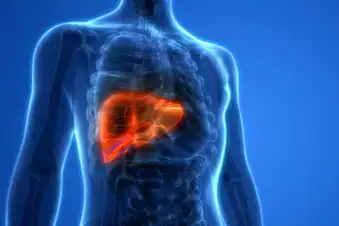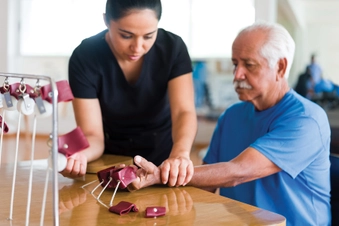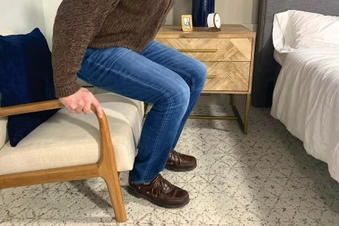Tips for Daily Living with hATTR with Polyneuropathy

What Is hATTR?
Hereditary transthyretin amyloidosis (hATTR) is a very rare disease that can cause disabling symptoms in different parts of your body. With hATTR, your liver makes abnormally shaped proteins that clump together and build up in your organs and tissues. Over time, that causes serious problems.
Symptoms gradually make it hard to work, get around, and even take care of yourself. But there are things you can do to help manage your daily life.

How hATTR Affects Your Body
Symptoms can be different from person to person. But most people have nerve problems called polyneuropathy. That may cause pain, trouble moving, dizziness when you stand, digestive issues, and sexual problems.
hATTR can also cause your heart muscle to get stiff and not pump as well as it should, known as cardiomyopathy. That can cause fatigue and trouble sleeping. Sometimes hATTR affects your eyes, causing vision problems.
Ask for Help
hATTR will have a big impact on your physical abilities. No one wants to feel like a burden, but you’re going to need help, whether it’s from your loved ones or from paid caregivers.
If you’re dealing with fatigue, ask family members to take on more of the household chores. See if a friend can run errands on days when you’re having trouble walking or lifting. Your needs will change as time goes on, so keep communication open.

Try Occupational Therapy
An OT program is designed to help you keep your independence as long as possible. A therapist can help you adapt to your physical limitations and teach you new ways to do daily tasks safely. They can also work with your family or other caregivers to show them how best to help you.
One study found that over a 6-month period, occupational therapy helped people with hATTR keep the skills they needed to take care of themselves.

Explore Assistive Devices
An occupational therapist can show you a whole range of tools and technology to make life easier. This can be as simple as a button hook or shoehorn, or as complicated as speech-recognition computer software.
Bathroom grab bars and mobility aids like a cane or walker can help prevent falls. If you have carpal tunnel syndrome – a common hATTR symptom – wrist braces can ease pain and tingling in your fingers.

Take Things Slowly
hATTR can damage your autonomic nervous system, which controls things you do without thinking, like breathing and digesting. This can cause your blood pressure to drop when you go from lying down to sitting, or from sitting to standing.
Go slow when you get up so you don’t faint and fall. Try stretching or squeezing your leg muscles before you sit up in bed. Sleeping with your head raised or wearing compression stockings can also help.

Stay Active
You may have a lot of things working against you, like pain or numbness in your legs and feet, weakness, and loss of muscle control. But there’s some evidence that physical activity can help your nerves heal and reduce pain.
Your doctor or a physical therapist can recommend exercises that you can do safely to stretch and strengthen your muscles, improve your balance, and keep your heart and blood vessels healthy.

Make Sleep a Priority
Good-quality sleep is important to your overall health, but it can be hard to come by with hATTR. You may have trouble sleeping at night and feel tired during the day. Damage to your peripheral nerves can lead to restless legs syndrome, which also disturbs your sleep.
Nap during the day if you need to, but not for so long that you aren’t tired at night. Keep your bedroom cool, dark, and quiet, and limit caffeine and alcohol.

Get Help With Eating Well
Autonomic nerve damage can cause digestive issues, and you may lose a lot of weight. A dietitian can help you come up with an eating plan that gets you the nutrition you need.
See if particular foods trigger symptoms like diarrhea and constipation. Eat several small meals a day. If swallowing is a problem, try soft food or soup. Choose heart-healthy foods, and limit fat and salt. Avoid alcohol because it slows down your digestion.

Speak Up About Sexual Problems
Sexual response is controlled by the autonomic nervous system, and symptoms like erectile dysfunction often go along with hATTR. Treatments are available, so talk to your doctor. And remember that there are plenty of other ways to be intimate besides intercourse.

Cultivate New Interests
Symptoms of hATTR can keep you from working, and you may have to give up certain hobbies or activities you enjoy. But you can reframe your limitations as an opportunity to try new things.
If reading is difficult, switch to audiobooks or podcasts. Your hands may no longer have the fine motor skills for woodworking, but you can take up painting with adaptive brushes. Yoga and swimming may feel better for your body than tennis or running.

Get Treatment for Your Symptoms
Treatments to slow the progression of hATTR are limited. But your doctor can prescribe medications for your symptoms to make it easier to manage your daily life.
You may get pain medication to either take by mouth or rub on your skin. Cortisone shots can help carpal tunnel pain. They can also give you drugs to keep your blood pressure stable and manage digestion problems.
Talk with your doctor before you take supplements or OTC drugs.

Tend to Your Mental Health
Being diagnosed with an illness like hATTR can be overwhelming. It’s common to feel angry, sad, or frustrated. You may also feel a sense of guilt if you’ve passed the gene that causes it on to your children.
Therapy can help you and your family members cope with the diagnosis. You can also try things like meditation and relaxation techniques.

Get Support
It can be hard living with a disease most people have never heard of. You may feel isolated. It can help to connect with people who know what you’re going through. Consider joining a support group, either online or in person. Some places to start:
Show Sources
IMAGES PROVIDED BY:
- iStock/Getty Images
- iStock/Getty Images
- Moment/Getty Images
- E+/Getty Images
- iStock/Getty Images
- WebMD
- iStock/Getty Images
- E+/Getty Images
- iStock/Getty Images
- DigitalVision/Getty Images
- Photodisc/Getty Images
- iStock/Getty Images
- E+/Getty Images
- DigitalVision/Getty Images
SOURCES:
Amyloidosis Research Consortium: “Hereditary Transthyretin Amyloidosis,” “Neuropathy in Amyloidosis: Symptoms and Management,” “Gastrointestinal Involvement in Amyloidosis: Symptoms and Management,” “Treatment Overview: Hereditary Transthyretin Amyloidosis,” “Finding Support.”
Cleveland Clinic: “Amyloidosis.”
Therapeutics and Clinical Risk Management: “Diagnosis and Treatment of Hereditary Transthyretin Amyloidosis (hATTR) Polyneuropathy: Current Perspectives on Improving Patient Care.”
American Heart Association: “What is hATTR Amyloidosis?”
Orphanet Journal of Rare Diseases: “Psychosocial burden and professional and social support in patients with hereditary transthyretin amyloidosis (ATTRv) and their relatives in Italy,” “Occupational practice in patients with hereditary transthyretin amyloidosis, a qualitative study.”
American Occupational Therapy Association: What is occupational therapy?
The Foundation for Peripheral Neuropathy: “Exercise + Physical Therapy For Neuropathy,” “Managing & Coping with Neuropathy.”
Amyloidosis Foundation: “Hereditary Amyloidosis,” “The Patient Resources,”
Mayo Clinic: “Autonomic neuropathy.”
MedlinePlus: “How to Improve Mental Health.”